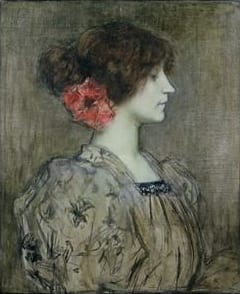‘Hope costs nothing’: The life and legacy of French novelist Colette
‘Hope costs nothing’: The life and legacy of French novelist Colette
‘Hope costs nothing’: The life and legacy of French novelist Colette
-
Hannah
-
Hannah

I was thrilled to read of a new movie being released in September based upon the life of Sidonie-Gabrielle Colette. Here is the trailer for Colette:
Setting aside the fact that the actors have English accents while depicting French characters, I’m looking forward to watching this film because it takes me back to the days of my degree in French literature.
I was twenty when I first read the works of Colette, and I remember how profound an effect her writing had upon me – not only her writing, however, but her own story too.
Colette was born in 1873, in Yonne, Burgundy. Her early life was fairly unremarkable, but for the fact she attended school from the age of six until the age of seventeen – quite an education for a female at this time. Her story really begins in womanhood, when she married Henry Gauthier-Villars.
Henry’s family had a publishing firm, Gauthier-Villars, which came in very handy for indulging his great passion in life: writing. At least, Henry enjoyed being the named writer on articles and books – under his pen name, Willy – but he enjoyed the writing far less, and he worked with a team of ghostwriters. At first, Colette answered correspondence on Henry’s behalf, but once her new husband saw that she could write, he recruited her to ghost for him a novel.
Claudine at School (1900) was well-received by fans of Willy, and followed by Claudine in Paris (1901), Claudine Married (1902) and Claudine and Annie (1903). The stories followed the life of the eponymous heroine Claudine, based loosely on Colette, and the experiences of the village girl in turn-of-the-century Paris.
Indeed, that village girl was having quite the time of it in real life, for Henry – fourteen years Collete’s senior – was immersed in the avant-garde intellectual circles in Paris at the time and was a well-known libertine. He was not a faithful husband, but then neither was Colette; in fact, unbeknownst to each other, they even had an affair with the same woman.
In 1910, the two divorced. Colette took not a penny from the union – Henry had full copyright for the Claudine novels – but she had learned how to be a writer. In the years that followed she struggled to support herself as an independent woman, and was forced to perform in music halls. She wrote about this time of her life in La Vagabonde (1910).
Then, in 1912, she found freedom through – ironically enough, for this feminist before feminism existed – marriage. Colette became Mrs Henry de Jouvenel, her marriage to the editor of Le Matin allowing her to give up work and devote time to her writing – and to raising their daughter, Colette de Jouvenel. Infidelity ended this union too, however. But Colette’s next husband, Maurice Goudeket, turned out to be a keeper.
Ghostwriting the popular Claudine series had given Colette a drive to write, and now she had the confidence to do so under her own name. During the 1920s and 1930s she wrote prolifically, and her works began to attract favourable attention from readers and even some of the hard-nosed critics of Paris. She wrote about the position of women in society, of sexuality, and of love without censoring her opinions or the experiences in her own life that inspired her to write; she was bold, brave, and beautiful in her prose.

Collete, painted by Jacques Humbert (Source)
In 1944, during the Occupation of France, Colette wrote her most famous work, Gigi, about a sixteen-year-old girl who is groomed to be a courtesan to a wealthy lover, but he falls in love with her and they end up married. The novella was adapted for the big screen and the stage; a young Audrey Hepburn played Gigi in the 1951 Broadway show.
Upon her death, in 1954, Colette’s great contribution to French literature was recognised when she was given a state funeral – the first woman of letters in France to receive this honour – and she was laid to rest in the Père Lachaise Cemetery in Paris. To this day people visit her tomb there, along with those of other great contributors to the arts like Honoré de Balzac, Molière, Proust and Chopin.
Collete’s legacy is a body of works that are imbued with heart and passion. I will leave you with some of my favourite quotations from her writings:
‘Be happy. It’s one way of being wise.’
‘Music is love in search of a word.’
‘Books, books, books. It was not that I read so much. I read and re-read the same ones. But all of them were necessary to me. Their presence, their smell, the letters of their titles, and the texture of their leather bindings.’
‘Put down everything that comes into your head and then you’re a writer. But an author is one who can judge his own stuff’s worth, without pity, and destroy most of it.’
‘You will do foolish things, but do them with enthusiasm!’
‘Hope costs nothing.’
The movie looks good. I like Keira Knightly. I first saw her in King Arthur. The story of Arthur as a Roman Officer before he became king. I loved the story. Keira Nightly was rescued from a dungeon. She is a warrior with remarkable tactical and strategic instincts in addition to an outstanding archer.
I am going to have to see Colette.
Thanks for the heads up.
You’re welcome. I hope the film is a good one!